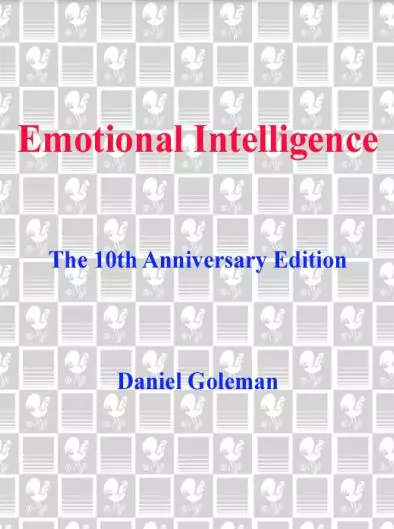‘Understanding Emotional Intelligence’ PDF Quick download link is given at the bottom of this article. You can see the PDF demo, size of the PDF, page numbers, and direct download Free PDF of ‘Emotional Intelligence Definition’ using the download button.
Understanding And Developing Emotional Intelligence Book PDF Free Download

THE EMOTIONAL BRAIN
Ponder the last moments of Gary and Mary Jane Chauncey, a couple completely devoted to their eleven-year-old daughter Andrea, who was confined to a wheelchair by cerebral palsy.
The Chauncey family were passengers on an Amtrak train that crashed into a river after a barge hit and weakened a railroad bridge in Louisiana’s bayou country.
Thinking first of their daughter, the couple tried their best to save Andrea as water rushed into the sinking train; somehow they managed to push Andrea through a window to rescuers.
Then, as the car sank beneath the water, they perished.1 Andrea’s story, of parents whose last heroic act is to ensure their child’s survival, captures a moment of almost mythic courage.
Without a doubt, such incidents of parental sacrifice for their progeny have been repeated countless times in human history and prehistory, and countless more in the larger course of the evolution of our species.
2 Seen from the perspective of evolutionary biologists, such parental self-sacrifice is in the service of “reproductive success” in passing on one’s genes to future generations. But from the perspective of a parent making a desperate decision in a moment of crisis, it is about nothing other than love.
As an insight into the purpose and potency of emotions, this exemplary act of parental heroism testifies to the role of altruistic love —and every other emotion we feel—in human life.
3 It suggests that our deepest feelings, our passions, and longings, are essential guides and that our species owes much of its existence to their power in human affairs.
That power is extraordinary: Only a potent love—the urgency of saving a cherished child—could lead a parent to override the impulse for personal survival.
Seen from the intellect, their self-sacrifice was arguably irrational; seen from the heart, it was the only choice to make.
Sociobiologists point to the preeminence of heart over head at such crucial moments when they conjecture about why evolution has given emotion such a central role in the human psyche.
Our emotions, they say, guide us in facing predicaments and tasks too important to leave to the intellect alone—danger, painful loss, persisting toward a goal despite frustrations, bonding with a mate, building a family.
Each emotion offers a distinctive readiness to act; each points us in a direction that has worked well to handle the recurring challenges of human life.
4 As these eternal situations were repeated and repeated over our evolutionary history, the survival value of our emotional repertoire was attested to by its becoming imprinted in our nerves as innate, automatic tendencies of the human heart.
A view of human nature that ignores the power of emotions is sadly shortsighted.
The very name Homo sapiens, the thinking species, is misleading in light of the new appreciation and vision of the place of emotions in our lives that science now offers.
As we all know from experience, when it comes to shaping our decisions and our actions, feeling counts every bit as much—and often more—than thought.
We have gone too far in emphasizing the value and import of the purely rational—of what IQ measures—in human life.
For better or worse, intelligence can come to nothing when the emotions hold sway.
WHEN PASSIONS OVERWHELM REASON
It was a tragedy of errors. Fourteen-year-old Matilda Crabtree was just playing a practical joke on her father:
she jumped out of a closet and yelled “Boo!” as her parents came home at one in the morning from visiting friends.
But Bobby Crabtree and his wife thought Matilda was staying with friends that night.
Hearing noises as he entered the house, Crabtree reached for his .357 caliber pistol and went into Matilda’s bedroom to investigate.
When his daughter jumped from the closet, Crabtree shot her in the neck. Matilda Crabtree died twelve hours later.
5 One emotional legacy of evolution is the fear that mobilizes us to protect our family from danger; that impulse impelled Bobby Crabtree to get his gun and search his house for the intruder he thought was prowling there.
| Author | – |
| Language | English |
| No. of Pages | 386 |
| PDF Size | 30 MB |
| Category | Self Improvement |
| Source/Credits | asantelim.files.wordpress |
Related PDFs
Understanding And Developing Emotional Intelligence Book PDF Free Download
